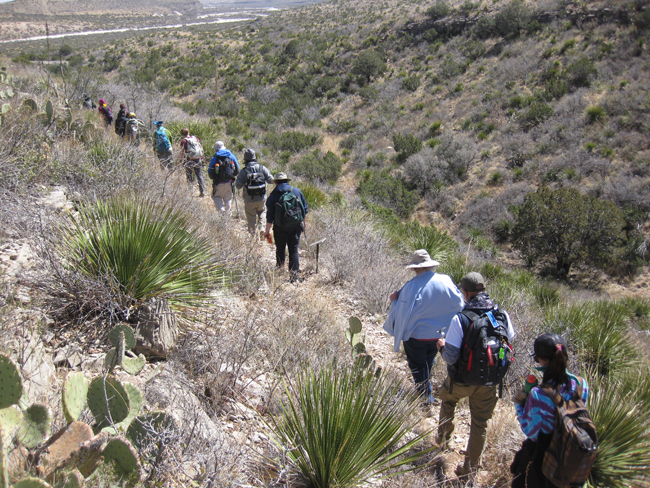While in West Texas over spring break, the “Border to Beltway” students took a hike up McKittrick Canyon, in Guadalupe Mountains National Park.
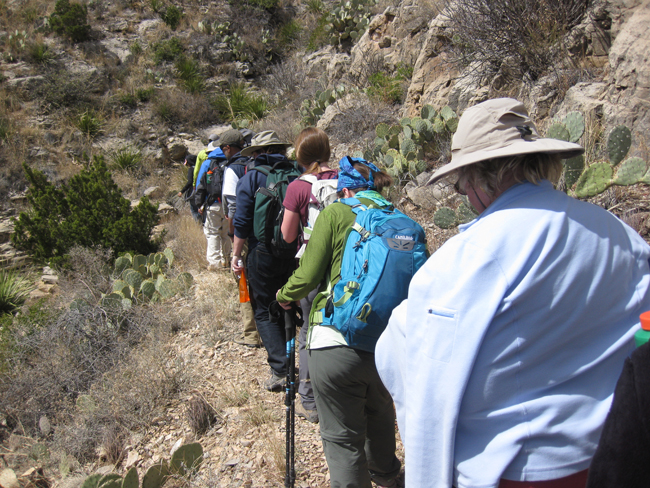
This is part of the famed Permian reef complex, the deep reservoir of Texas’s rich endowment of oil. Here, the reef comes to the surface. In fact, it pokes up a good bit into the air:
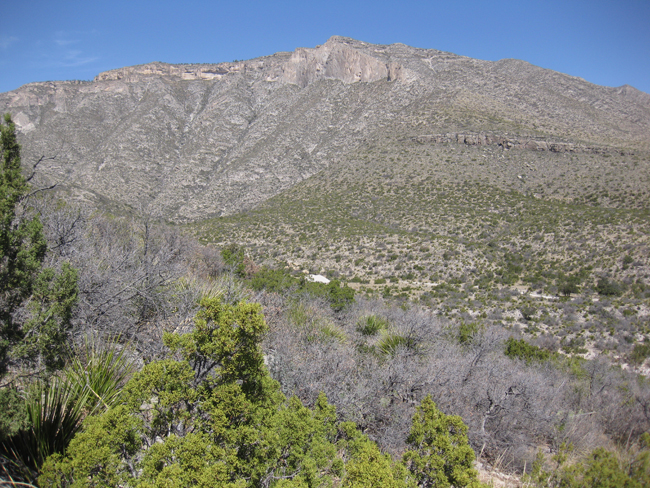
Can you see it? If not, let Marcelo, Robin, and Nicole show you the basic set-up:
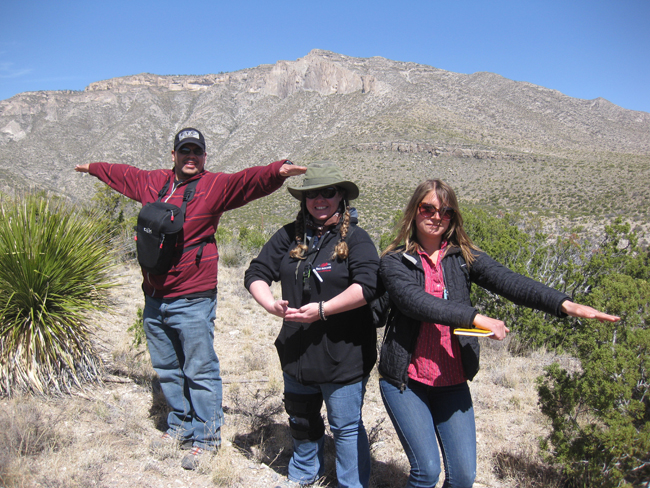
What they’re trying to say is this:
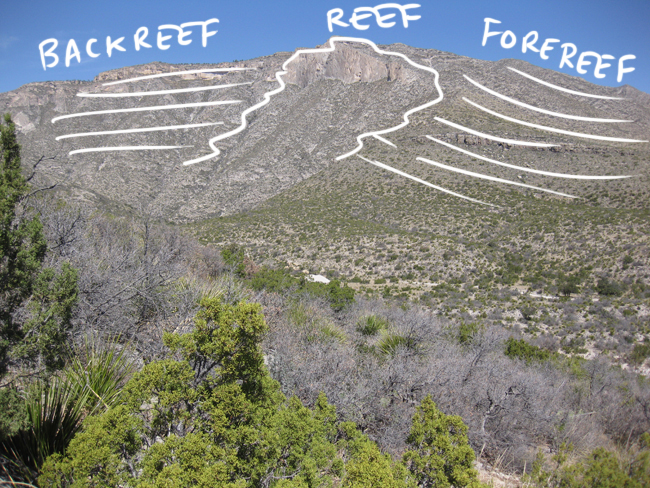
We were hiking in the forereef deposits of the Bell Canyon Formation.
Reefs are geologic structures built by living organisms, so you won’t be shocked to learn that there were plenty of fossils to be seen, though mostly as a hash of bits and pieces, occasionally as whole body fossils:
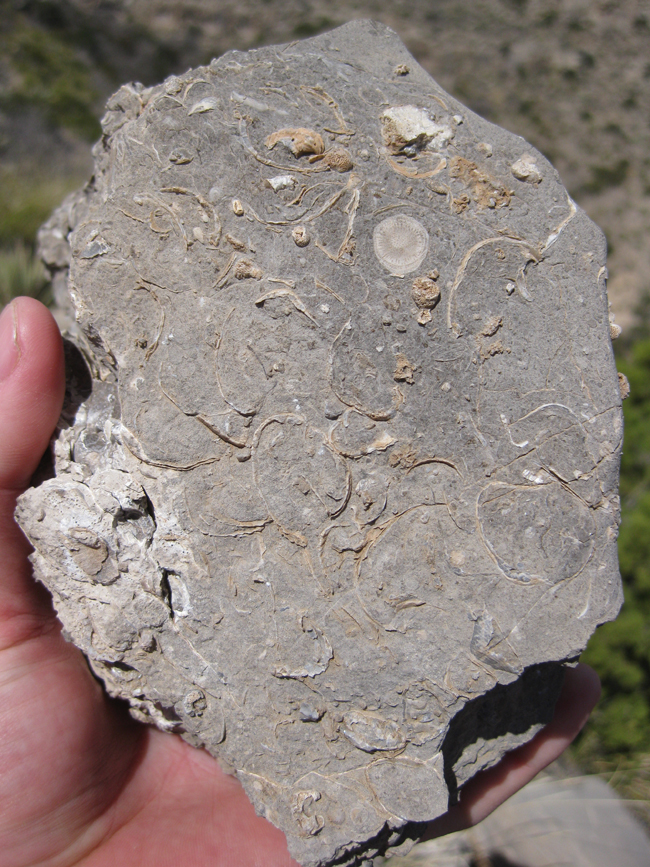
We were stunned to see two gorgeous echinoids (sea urchins) fossilized in fine-grained limestone:
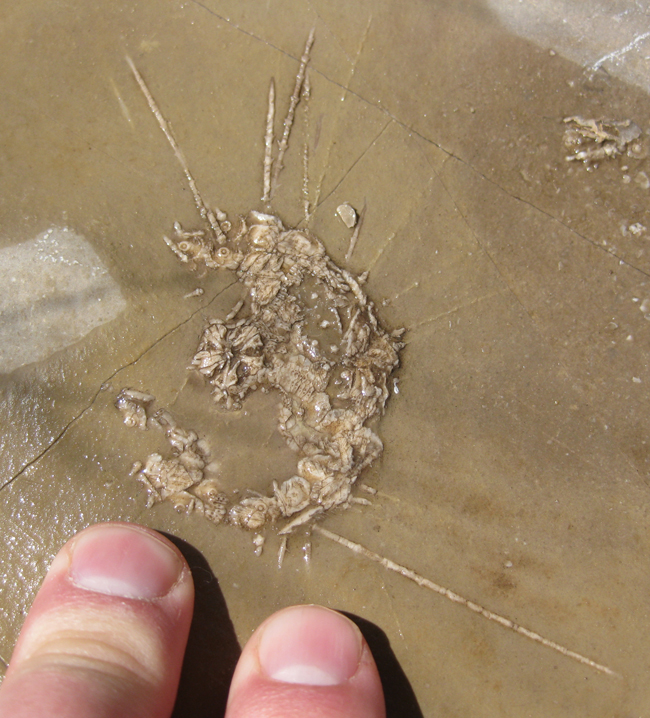
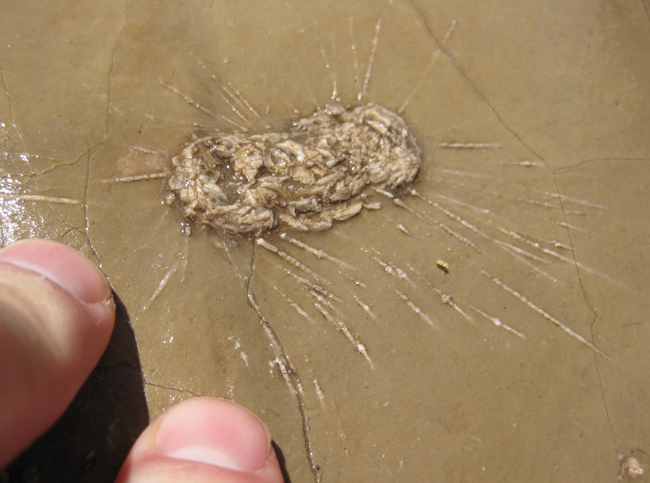
We were also delighted to find many graded beds in the carbonates: tropical forereef turbidites:

There were some small-scale faults on this block, too…
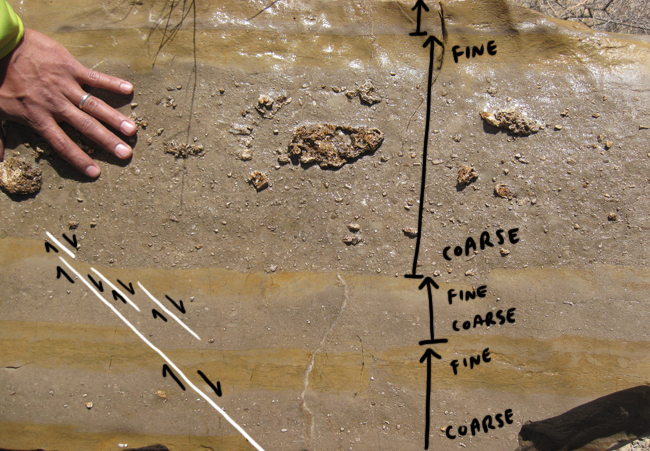
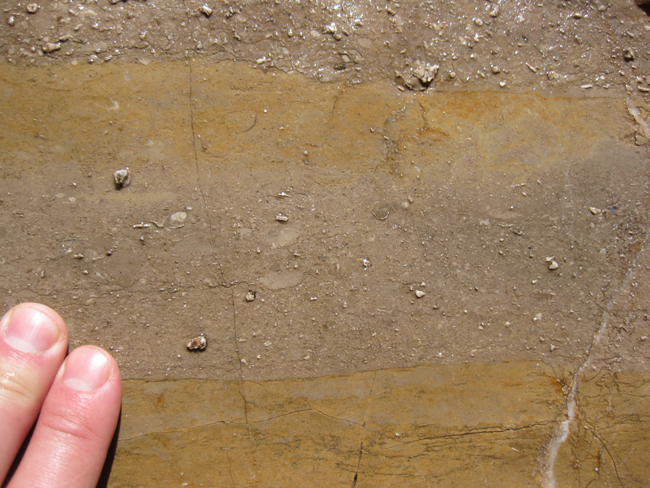
Here is another example:
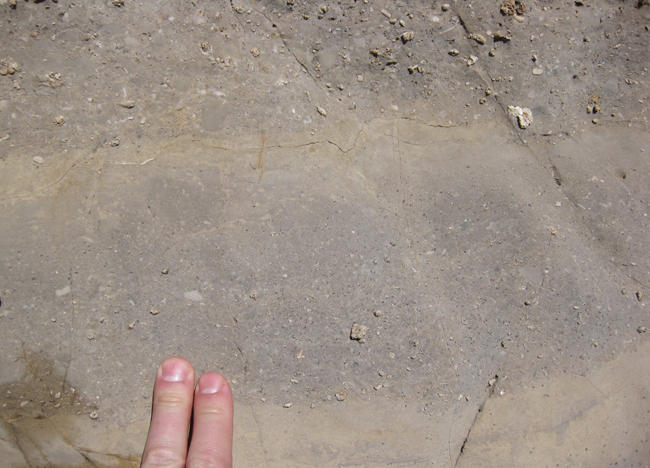
That’s a set of three lovely graded beds in carbonate:
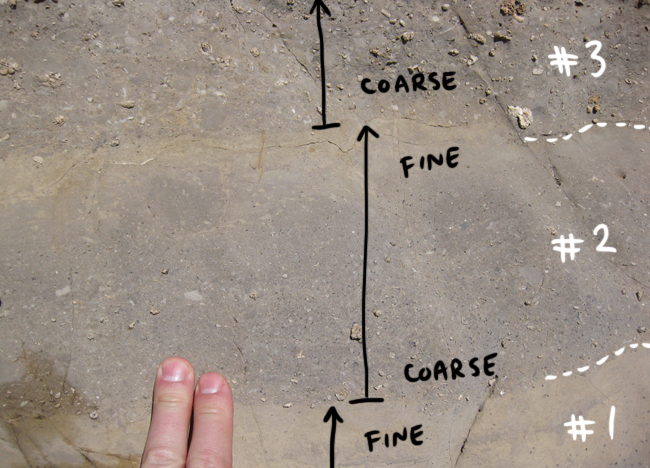
Zooming in on the middle one:
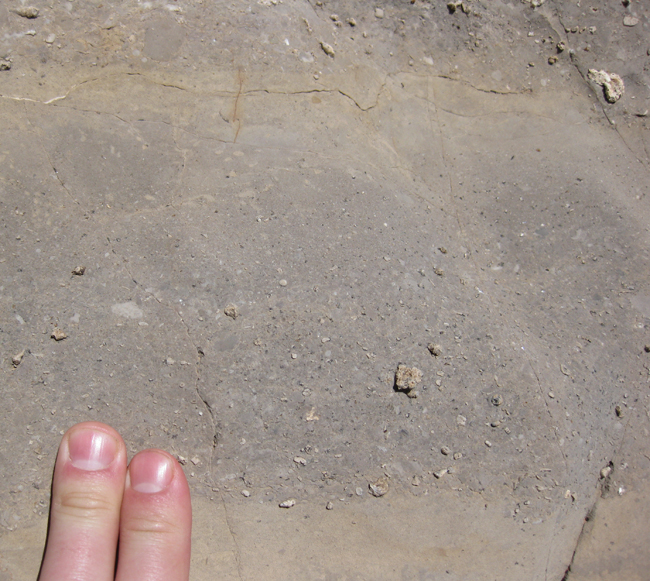
One more example. This one also has a bedding-parallel stylolite at the top:
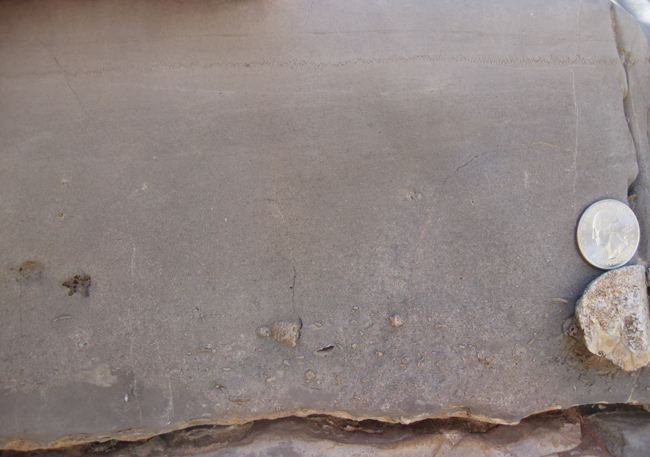
Another example of a stylolite:
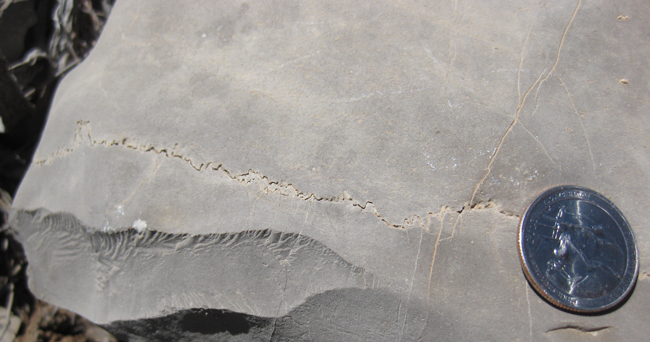
Great little hike, and great geology to be seen. We hiked back to the vans…
